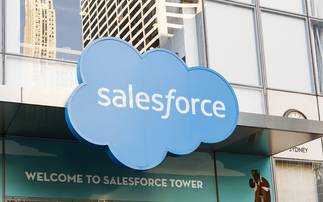Cost implications 'huge' for IT managers who don't prioritise capacity, says broadcaster
A good IT capacity management policy has "avoided 20 major incidents" at BSkyB in recent months, according to the company's head of capacity, Alan Collier. "It stops cock-ups," said Collier. "I...
To continue reading this article...
Join Computing
- Unlimited access to real-time news, analysis and opinion from the technology industry
- Receive important and breaking news in our daily newsletter
- Be the first to hear about our events and awards programmes
- Join live member only interviews with IT leaders at the ‘IT Lounge’; your chance to ask your burning tech questions and have them answered
- Access to the Computing Delta hub providing market intelligence and research
- Receive our members-only newsletter with exclusive opinion pieces from senior IT Leaders



















